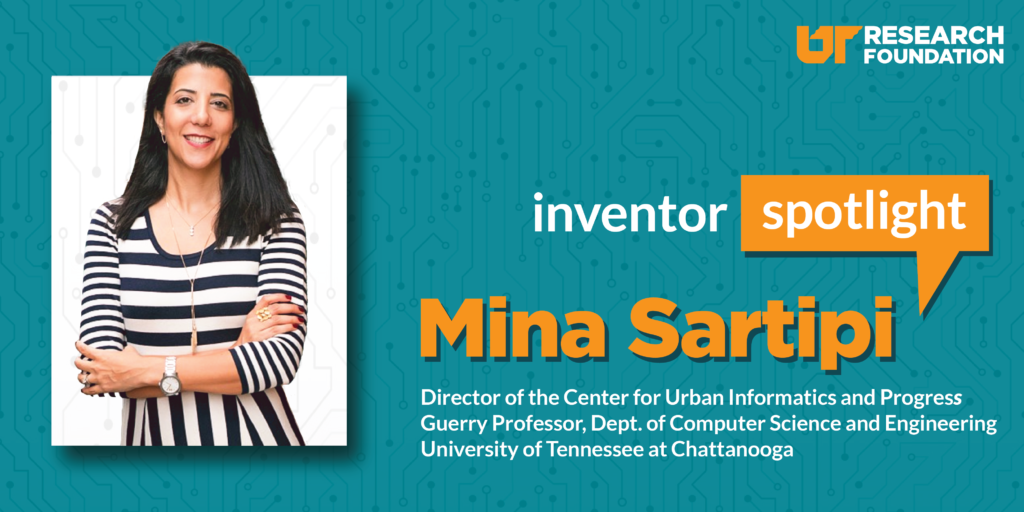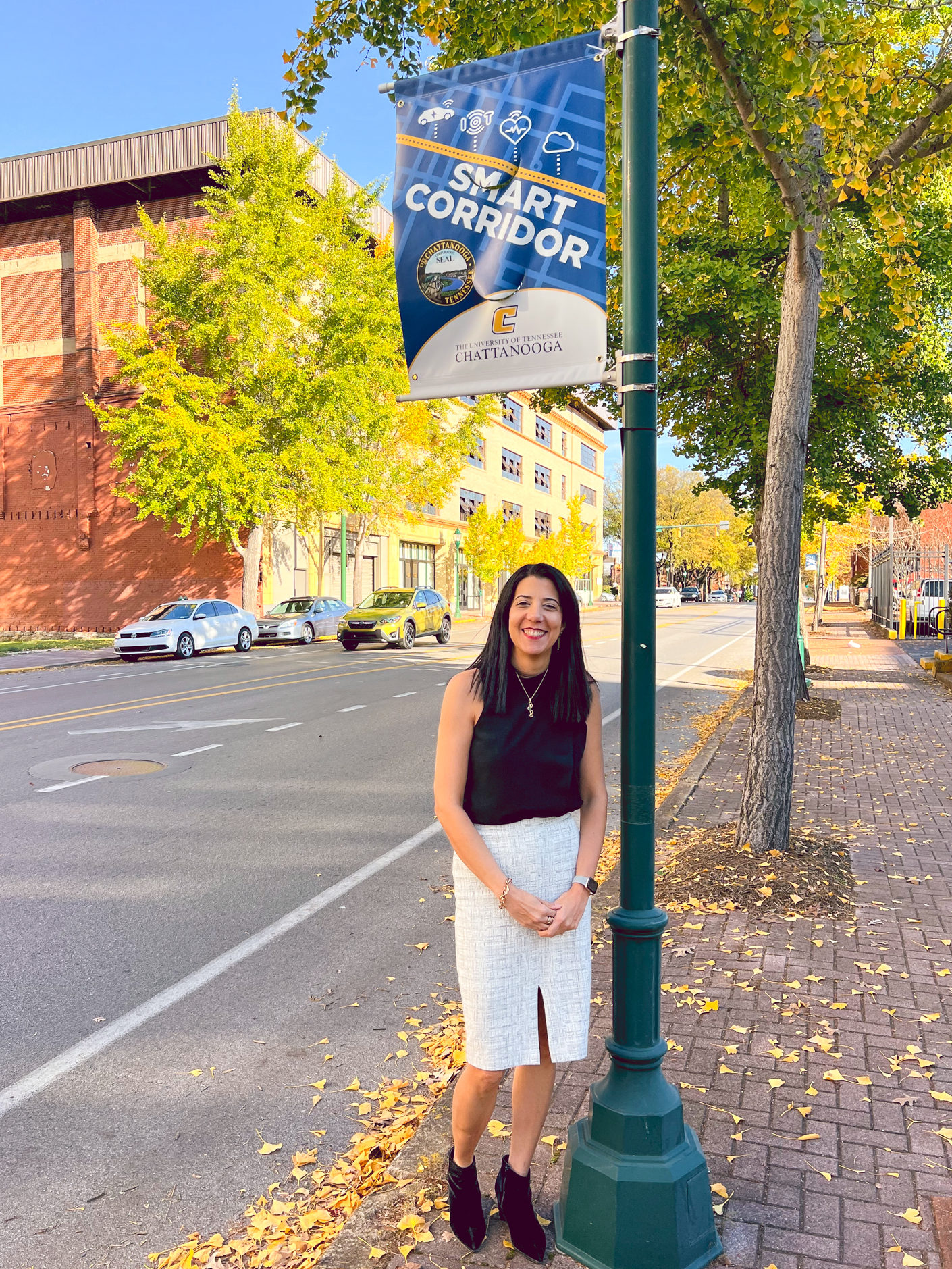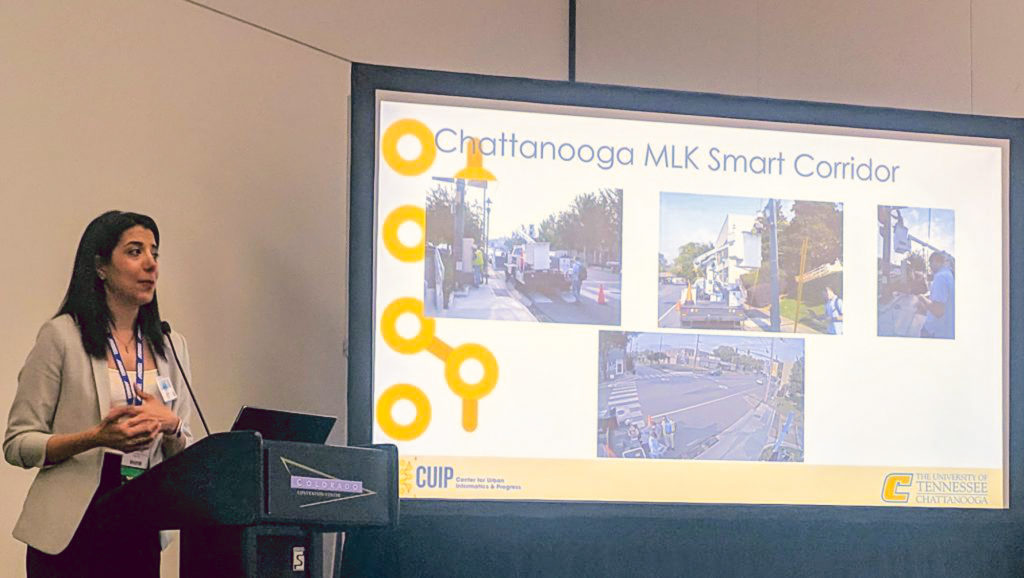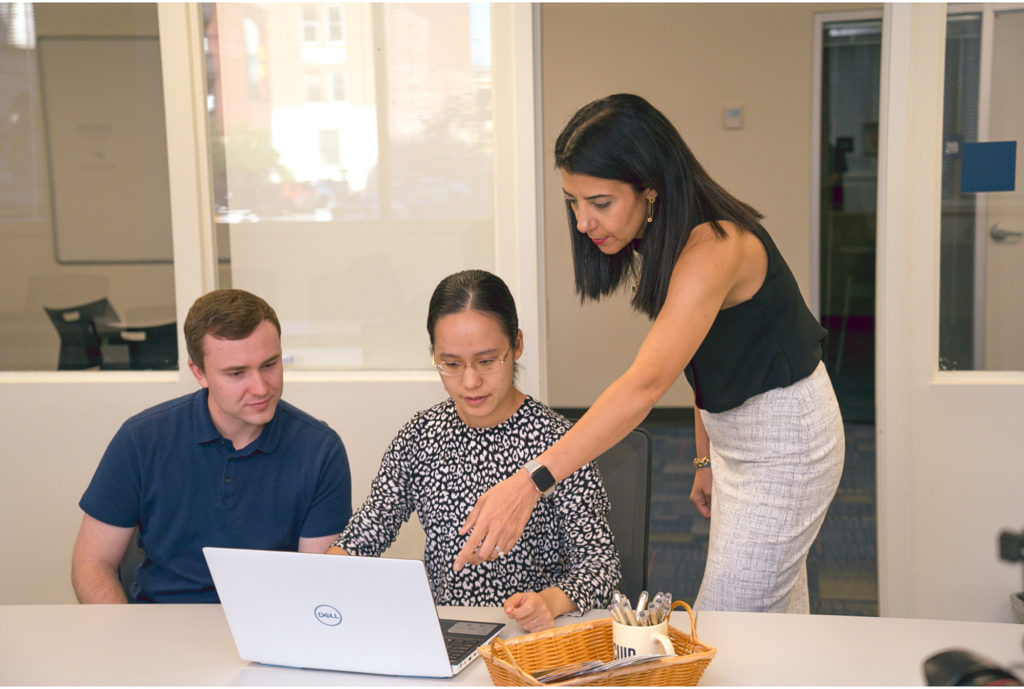
In 2010, Chattanooga was the first city in the country to offer one gigabit-per-second fiber internet service to all residents and businesses. Since then, researchers, policymakers, and community leaders have collaborated to build on this momentum and usher in a smart city, connected future.

One of these innovators is Mina Sartipi, the founding director of the Center for Urban Informatics and Progress (CUIP) at the University of Tennessee at Chattanooga (UTC). She also serves as a Guerry Professor in the Computer Science and Engineering Department and recently received a joint appointment at Oak Ridge National Laboratory.
CUIP is a UTC smart city urbanization research center focused on mobility, energy, healthcare, and social science research. Since its inception, CUIP has collaborated with the City of Chattanooga, Chattanooga Department of Transportation, EPB of Chattanooga, and The Enterprise Center to create, deploy and share smart city insights and solutions.
As part of the UT System, CUIP works closely with UTRF to make their research available to the public through various commercialization opportunities. Sartipi describes UTRF as a “great partner” in helping her team see how their research applies to the community in Chattanooga and beyond.

Dr. Mina Sartipi’s forward-thinking leadership at CUIP is a wonderful example of innovation in action,” said UTRF Interim President Maha Krishnamurthy. “The City of Chattanooga and CUIP are paving the way for a smart-city future. We’re excited to support Sartipi and her team as they continue to find dynamic solutions backed by real-world data.”
In 2019, CUIP launched its 1.2-mile MLK Smart Corridor testbed to accelerate smart city and connected and autonomous vehicle research. To expand this initial project, the U.S. Department of Transportation recently awarded Chattanooga a $4.57 million grant to build an integrated, smart transportation management system for electric vehicles. Matching funds from private and public partners brought the total investment to $9.2 million.
The vision we have for Chattanooga is to be a city-scale testbed for next-generation transportation,” said Sartipi. “I believe the days of working on small pilot projects are over. This technology has gotten to the point where it needs to be tested. This grant aims to bring together people, energy, and transportation in a real-world setting.”

Other notable CUIP projects include using current and historical 911 data to identify accident trends, assessing best practices for energy in urban settings, and working with local partners to conduct air quality research.
With each of CUIP’s projects, Sartipi remarked that gathering data isn’t the end goal. She wants their work to be a “closed loop” that starts and ends with the community they serve.
Our end goal is understanding the challenges and ensuring we get input and feedback from our citizens,” said Sartipi. “We work closely with our local, state, and federal government and municipalities to understand how our work can be implemented.”

From facilitating research at CUIP to helping students learn how to communicate with others outside of their discipline, the value of connection has been important for Sartipi, particularly when it comes to teaching. From an early age, Sartipi always knew she wanted to be in a classroom; in second grade, she began tutoring other children in her neighborhood.
In what? I don’t know,” she joked. “But teaching has always been my passion. As a university faculty, I train our students and the next-generation workforce. Our students are the workforce behind every project, result – everything. And we have tried to make a diverse team. Diversity adds much value to the work we are doing.”